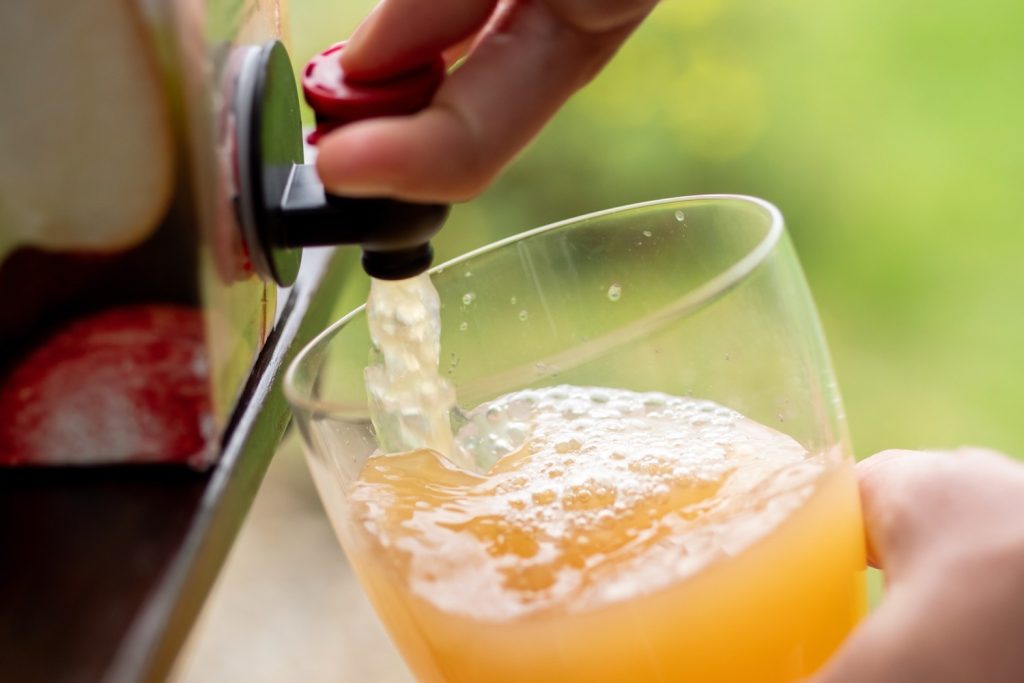Smart Machine Technologies builds industrial pasteurization equipment, including tunnel pasteurizers and steam boxes, for use in a wide range of food manufacturing applications. Below we answer some commonly asked questions about the pasteurization process itself and how our machines use it to improve food safety and lengthen product shelf life.
PASTEURIZATION: FREQUENTLY ASKED QUESTIONS
Wondering what pasteurization actually is, how it works for different foodstuffs, and how you can best put it to work in your food production operation? Read on to learn more.
WHAT IS PASTEURIZATION?
Pasteurization involves the heat treatment of liquid or “wet” foodstuffs to a specific temperature for a specified time to kill potentially harmful bacteria and other microorganisms that may be present. Pasteurization helps to extend the shelf life of the product and reduce the risk of foodborne illnesses.
The temperature and duration of the thermal treatment used in pasteurization depend closely on the type of food being pasteurized, in addition to the level of food safety required.
WHAT DOES THE PASTEURIZATION PROCESS KILL?
The microorganisms that are killed by pasteurization depend on the type of food or beverage being processed, as well as the temperature and duration of the treatment. Generally speaking, pasteurization is effective at killing or reducing the levels of pathogenic bacteria, viruses, and fungi in the food or beverage, like:
- Salmonella
- Listeria
- E. coli
- Campylobacter
- Mycobacterium tuberculosis
- Hepatitis A virus
- Norovirus
- Cryptosporidium
WHAT FOODSTUFFS CAN PASTEURIZATION BE USED ON?
Pasteurization can benefit any food product that may be at risk of exposure to bacteria and other microbes. The food must be able to withstand high temperatures without being significantly altered. Among the many foods and semi-solid products that benefit from pasteurization are:
- Jams and jellies
- Salad dressing
- Soup
- Stew
- Canned goods
- Baby food
- Sauces and salsa
- Syrups
- Eggs and egg products
- Toothpaste
- Condiments, such as ketchup, mayonnaise, and mustard
- Dairy products
- Beer
IS PASTEURIZATION DIFFERENT FROM STERILIZATION?
Sterilization involves subjecting any material to very high temperatures to completely eliminate any living organisms. Sterilization can significantly change the taste, texture, and nutritional quality of many types of food. Pasteurization is a gentler process that involves heating liquid foods enough to destroy pathogens while preserving the natural qualities of food.
WHAT ARE HTST AND UHT PASTEURIZATION?
Food manufacturers and packagers use several pasteurization processes depending on the product they are handling. HTST and UHT are two of the most common.
- High-Temperature Short-Time (HTST) or “flash” pasteurization is the most widely used form of industrial pasteurization. HTST involves heating the liquid to a temperature of at least 161°F for 15-20 seconds, preceded by rapid cooling to below 39°F to prevent the survival and multiplication of microorganisms.
- Ultra-High-Temperature (UHT) pasteurization involves heating the liquid to a temperature of at least 275°F for 1-2 seconds. UHT produces a longer shelf life for the product, as it kills all microorganisms, including spores. This means the product does not require refrigeration until the container is opened.
HOW DOES PASTEURIZATION AFFECT SHELF LIFE?
Pasteurization can increase the shelf life of refrigerated and non-refrigerated products by several days or even weeks, depending on the type of food, the pasteurization process used, and the sterility and integrity of the packaging.
Fresh and untreated foods like fruit juice, milk, or egg products will typically have a shorter shelf life than processed products like beer, jams, or jellies.
Most foods treated by the HTST method need to be refrigerated. Some foods treated by the UHT process can last for many months unrefrigerated, provided they are fully sealed in sterile packaging. All pasteurized products need to be refrigerated after opening.
HOW DOES PASTEURIZATION AFFECT THE NUTRITIONAL VALUE?
Choosing the correct pasteurization process for your product will help protect its nutritional value and quality and extend its shelf life while enhancing food safety. Heating a product too quickly or for too long can lead to changes in consistency and taste and even damage packaging.
SMT can design customized pasteurization equipment for your product that controls precisely both how long your product is exposed to the optimum temperature for pasteurization and how quickly it is heated to the required level.
HOW ARE LIQUIDS AND FOODSTUFFS PASTEURIZED AT SCALE?
During bulk pasteurization processes, liquids are usually passed through either a heat exchanger or a holding tube. This is designed to make sure that the liquid is heated uniformly and held at the required temperature for a certain time. Then, the pasteurized liquid is cooled, stored, and refrigerated until it is ready to be packaged in pre-sterilized containers.
Pasteurizing large volumes of liquids comes with significant challenges, including:
- Ensuring a constant flow of liquids is heated uniformly in the exchanger or holding tube
- Keeping large volumes of stored pasteurized product sterile before packaging
To address these challenges, producers are looking at solutions that allow foodstuffs to be pasteurized once already sealed in packaging.
WHAT ARE THE ADVANTAGES OF TUNNEL PASTEURIZERS?
Tunnel pasteurizers are integrated units that allow your product to be pasteurized in its packaging as it moves down your production line. Tunnel pasteurizers are particularly suited to high-volume production of canned or bottled products, like beer.
A tunnel pasteurizer moves your finished product through a series of chambers where it is heated by spraying it with steam or hot water, then maintained at a required pasteurization temperature for a set time. Finally, it is sprayed with cold water to rapidly cool it down.
Tunnel pasteurization equipment has been shown to be very effective at inhibiting pathogen and microorganism growth. It is often preferred to HTST and other common pasteurization techniques because:
- Product is pasteurized after packaging, reducing the chance of contamination
- Downstream contamination of unpackaged pasteurized product is eliminated
- Product is heated slowly to prevent damage to the packaging
- Fully automated processes minimize handling
At SMT, we design and build fully integrated tunnel pasteurization units configured specifically to your product safety needs and the speed and volume of your process.
WHAT ARE THE ADVANTAGES OF STEAM BOXES?
Stand-alone steam boxes provide versatile, cost-effective in-packaging pasteurization. Like tunnel pasteurizers, stream boxes allow the finished product to be heated slowly to prevent damage to the packaging and eliminate the need to keep pasteurized liquid sterile prior to packaging.
However, steam boxes offer some clear advantages over alternatives, especially for smaller craft or artisanal food or drink producers. These include:
- Custom volumes: Batch process product as needed
- Versatile: Pasteurize different products using the same unit
- Independence: Your pasteurization process is not tied to your production line
- Size: Steam boxes take up less floor space than comparable alternatives.
- Affordability: Our simpler, stand-long units cost less than fully integrated and automated tunnel equipment.
SMT steam box pasteurization units can be built to meet your specific food processing needs. Our largest units can accommodate a fully loaded and wrapped pallet for fast, flexible in-packaging pasteurization.
SMT: YOUR PRODUCT PASTEURIZATION PARTNER
Smart Machine Technologies provides efficient, durable, and ultra-reliable equipment to leading food and beverage manufacturers worldwide. Whether you are a start-up craft brewery or a household name, our commercial pasteurization equipment is designed and built to integrate fully with your existing or new line equipment and scale perfectly to your production needs.
And, our tried-and-true technology and world-class reliability mean you will never have to compromise on food safety or quality.
Talk to us about your commercial pasteurization needs. We build fully customized units to meet the specific needs of food, beer, and juice producers of all types with unmatched expertise, experience, and attention to detail.
Click below to learn about our robust, reliable commercial pasteurization solutions.






 Contract
Contract Food & Bev
Food & Bev